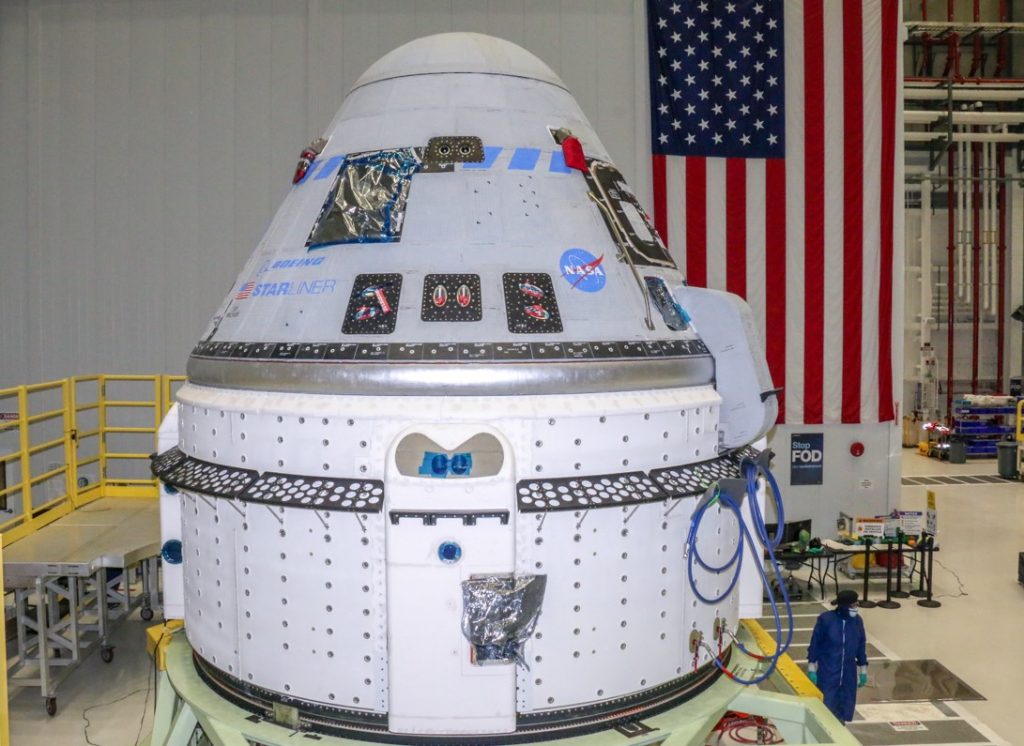
Teams from NASA, Boeing and United Launch Alliance completed a launch readiness review on July 27 ahead of NASA’s Boeing Orbital Flight Test-2 mission to the International Space Station. The launch teams still are “go” for launch of Boeing’s CST-100 Starliner spacecraft on a mission to the microgravity laboratory on the company’s second uncrewed flight test.
Launch is scheduled at 2:53 p.m. EDT on Friday, July 30, on a United Launch Alliance Atlas V rocket from Space Launch Complex-41 at Cape Canaveral Space Force Station in Florida.
At 1 p.m., NASA will host a prelaunch news briefing at the agency’s Kennedy Space Center in Florida. Participants are:
- Steve Stich, manager, NASA’s Commercial Crew Program
- Joel Montalbano, manager, NASA’s International Space Station Program
- John Vollmer, vice president and program manager, Boeing Commercial Crew Program
- Gary Wentz, vice president, Government and Commercial Programs, ULA
- Jennifer Buchli, deputy chief scientist, NASA’s International Space Station Program
- Will Ulrich, launch weather officer, U.S. Space Force, 45th Weather Squadron
For a launch Friday, meteorologists with the U.S. Space Force 45th Weather Squadron are predicting a 40% chance of favorable weather. The primary weather concerns for launch day are the cumulus cloud rule, surface electric rule and lightning rule violations during the instantaneous launch window.
More details about the mission and NASA’s Commercial Crew Program can be found by following the commercial crew blog, @commercial_crew and commercial crew on Facebook.
Learn more about station activities by following @space_station and @ISS_Research on Twitter as well as the ISS Facebook and ISS Instagram accounts.
